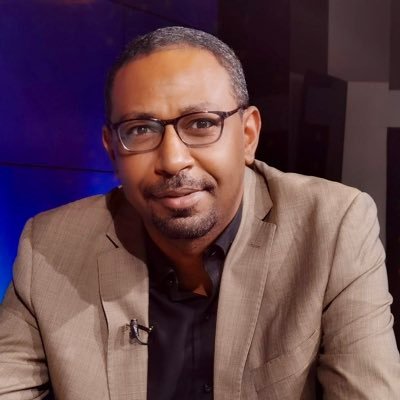The Way Forward: Saving Lives, Protecting Valuable and Enabling Frontline Respondents

Closing Remarks presented by Dr. Amgad Fareid Eltayeb;
The Executive Director of Fikra for Studies and Development
This conference is not an event…It is the beginning of a process that we hope will materialize soon on the ground into effective means to revitalize the humanitarian response to the crisis in Sudan.
To this end, only the truth shall serve us. We will need to address the critical voids that impede the effective delivery of humanitarian aid for the world’s largest humanitarian crisis, which has persisted for seven months since the outbreak of war in Sudan.
Numbers speak for themselves:-
Thousands of civilians were killed in the crossfire.
5 million IDPs and refugees.
25 million people are on the edge of famine.
19 million children are out of school.
Countless civilians are trapped in besieged areas in Darfur and Khartoum with no access to food, water, health care, or any other basic needs.
And it goes on and on and on…
In this presentation, I am going to go over a few points that we hope will help to shape the way forward.
Humanitarian access and the protection of civilians are not matters of negotiation. They are rights granted to civilians in a situation of war by international humanitarian laws and the Geneva Conventions. Allowing the warring parties to negotiate on what humanity has agreed upon since the end of the Second World War is not acceptable. And it gives them the chance to use their violations as pressure cards for political maneuvering and military gains.
This needs to stop.
Arrangements for the provision of humanitarian assistance should be separated and independent from all military and political discussions. These are basic rights for civilians, not pressure cards, and should not be weaponized. Furthermore, these arrangements should take place on the ground. It cannot happen from abroad and cannot happen by proxy. The different international aid organizations need to be present in conflict areas and establish direct contact with the warring parties on the ground. Their presence also provides some protection to civilians since the warring parties will avoid committing the same level of violations in front of them. We have UNAMID experience, for example.
Civilians’ voices should be represented in the arrangements for delivering humanitarian aid. But which civilians?
Of course, not me nor anyone from the political class, but it is those first respondents at the emergency room, youth initiatives, elected trade unions, and other actors who are present on the ground providing aid for the vulnerable with minimal resources and under continuous harassment from all sides. The protection and empowerment of those grassroot actors should be at the top of the agenda.
I repeat that humanitarian discussions and commitments should not be used for any political gain or to be a bargaining card by any stakeholders, whether domestic, regional, or international. It only needs to take place. And it needed to happen yesterday.
Localization: Since the beginning of the war, the local volunteers and emergency response rooms were the first respondents. They showed unbelievable courage and creativity in responding to the crisis. Evacuating people trapped in the fighting areas, opening passages for the delivery of aid, helping in reopening and establishing health facilities, and delivering food, water, and basic needs. There is no way to plan for an effective humanitarian process without having these volunteers and entities, their experiences, and the lessons learned from the past 7 months at the heart of the process.
The pre-war humanitarian architecture needs to adapt and be restructured to be more capable of responding to the crisis.
We suggest establishing a coordination mechanism that serves as a platform for effective collaboration and a sustainable link between local initiatives and international stakeholders. This will also serve the purpose of facilitating the exchange of skills and information between the different actors.
We have to remember that each harsh situation is a learning opportunity. And as we need vulnerable communities to be resilient, we also need aid organizations to be flexible and open to learning from practical experience. Humanitarian work cannot be routine, and the situation cannot be dealt with as business as usual.
Decentralization: Sudan is very big, the area of the conflict is vast, and there are different responses in the different areas, depending on the local settings. There is no practical way to centralize the response. And the attempt to centralize the humanitarian efforts of the ERR will only decrease its effectiveness. The creativity of the local respondents in addressing the crisis and needs in their respective situations is to be applauded.
One more essential cornerstone is ensuring that the emergency rooms continue to maintain their impartiality. The emergency rooms and the local initiative are the ones who are providing the best possible assistance to everyone who is in need right now. It is imperative that we all safeguard this and keep them away from any and all political shadows.
We are presenting these suggestions as fundamental highlights. In the coming days, the conference’s preparatory committee and technical working groups will continue their efforts and engage in communication with all participants in order to develop a practical framework and realistic plan to materialize these recommendations.
This plan, which will be actively shared with all stakeholders, will include a detailed assessment of requirements, proposed timelines, and a logical framework for revitalizing the response to the humanitarian crisis in Sudan.
This conference is intended to unleash hopes for a better humanitarian response in Sudan and serve as a reminder that our combined international efforts are not supposed to bring us to heaven, but they are supposed to save us from hell.
May Allah the Save Sudan and the people of the Sudan



